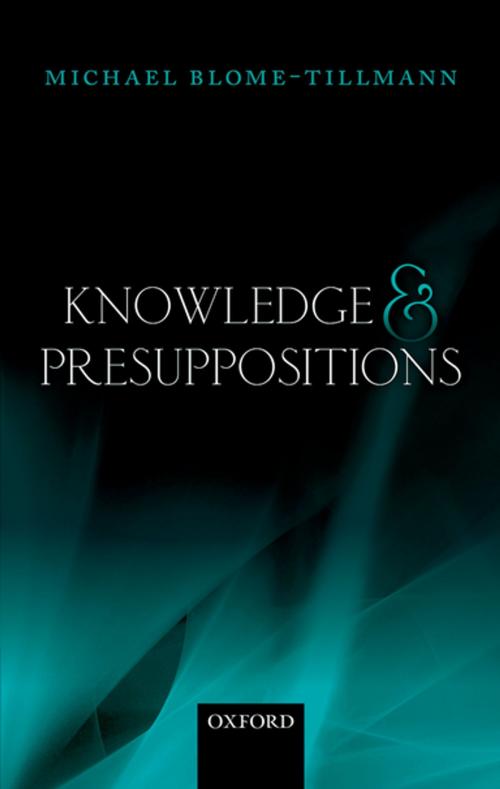Knowledge and Presuppositions
Nonfiction, Religion & Spirituality, Philosophy, Epistemology, Reference & Language, Language Arts| Author: | Michael Blome-Tillmann | ISBN: | 9780191039089 |
| Publisher: | OUP Oxford | Publication: | May 22, 2014 |
| Imprint: | OUP Oxford | Language: | English |
| Author: | Michael Blome-Tillmann |
| ISBN: | 9780191039089 |
| Publisher: | OUP Oxford |
| Publication: | May 22, 2014 |
| Imprint: | OUP Oxford |
| Language: | English |
Knowledge and Presuppositions develops a novel account of epistemic contextualism based on the idea that pragmatic presuppositions play a central role in the semantics of knowledge attributions. According to Blome-Tillmann, knowledge attributions are sensitive to what is pragmatically presupposed at the context of ascription. The resulting theory—Presuppositional Epistemic Contextualism (PEC)—is simple and straightforward, yet powerful enough to have far-reaching and important consequences for a variety of hotly debated issues in epistemology and philosophy of language. In this book, Blome-Tillmann first develops Presuppositional Epistemic Contextualism and then explores its ability to resolve various sceptical paradoxes and puzzles. Blome-Tillmann also defends PEC against familiar and widely discussed philosophical and linguistic objections to contextualism. In the final chapters of the book PEC is employed to illuminate a variety of concerns central to contemporary discussions of epistemological issues, such as Gettier cases, Moorean reasoning, the nature of evidence, and other current problems and puzzles.
Knowledge and Presuppositions develops a novel account of epistemic contextualism based on the idea that pragmatic presuppositions play a central role in the semantics of knowledge attributions. According to Blome-Tillmann, knowledge attributions are sensitive to what is pragmatically presupposed at the context of ascription. The resulting theory—Presuppositional Epistemic Contextualism (PEC)—is simple and straightforward, yet powerful enough to have far-reaching and important consequences for a variety of hotly debated issues in epistemology and philosophy of language. In this book, Blome-Tillmann first develops Presuppositional Epistemic Contextualism and then explores its ability to resolve various sceptical paradoxes and puzzles. Blome-Tillmann also defends PEC against familiar and widely discussed philosophical and linguistic objections to contextualism. In the final chapters of the book PEC is employed to illuminate a variety of concerns central to contemporary discussions of epistemological issues, such as Gettier cases, Moorean reasoning, the nature of evidence, and other current problems and puzzles.















